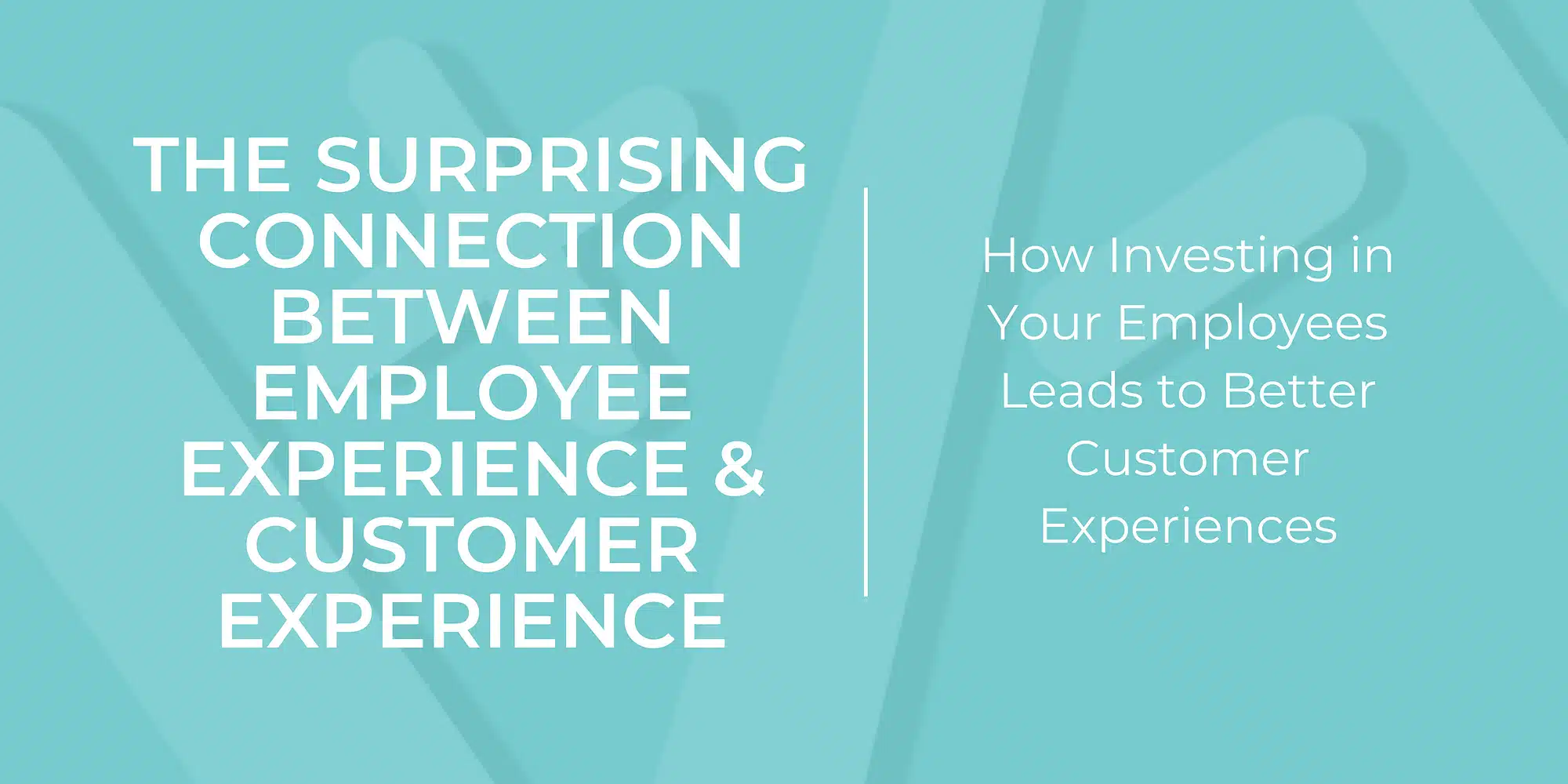Hey there, customer experience aficionados!
You know what they say: happy employees, happy customers. And that’s no joke! The relationship between employee experience and customer experience is a critical one, and optimizing it can make all the difference when it comes to keeping your customers happy and coming back for more.
So buckle up, grab a coffee, and let’s dive into the world of employee experience and how it impacts your customers.
First things first:
What exactly is employee experience, anyway? Simply put, employee experience refers to how your employees feel about working for your company. This encompasses everything from their physical work environment to their interactions with colleagues and managers, to the tools and resources they have at their disposal to do their jobs effectively. It’s a broad concept, but it boils down to one thing: making sure your employees are happy, engaged, and motivated to do their best work.
But why does this matter for customer experience? Well, the answer is pretty straightforward: happy employees make for happy customers. Think about it: if your employees are grumpy, overworked, and disengaged, it’s going to be pretty tough for them to provide top-notch customer service. On the other hand, if your employees are energized, enthusiastic, and empowered to do their jobs well, that enthusiasm is going to shine through in their interactions with customers. And that’s exactly what you want, right?
Now, you might be thinking, “Okay, sure, happy employees are great and all. But how does that actually translate into better customer experiences?” Well, let’s take a look at a few key ways that employee experience impacts customer experience.
Happy employees are more likely to provide exceptional customer service. When your employees feel valued and supported, they’re more likely to go above and beyond to help customers solve their problems and meet their needs. On the flip side, if your employees are feeling burnt out and unappreciated, they’re more likely to provide lackluster service or even be downright rude to customers. And that’s definitely not going to help you win any points in the customer experience department.
Key Ways Employee Experience Impacts Customer Experience
Another key way that employee experience impacts customer experience is through employee retention. When your employees are happy, engaged, and motivated, they’re more likely to stick around for the long haul. This means that you’ll have a more experienced and knowledgeable team of customer service reps who can provide top-notch support to your customers. On the other hand, if your employees are constantly quitting or getting fired, you’ll be left with a team of inexperienced reps who may struggle to provide the level of service your customers expect.
But it’s not just about retaining employees – it’s also about attracting top talent. When your company has a reputation for being a great place to work, you’ll be able to attract the best and brightest candidates for your open positions. And those top performers are more likely to be able to provide exceptional customer service, which in turn will drive better customer experiences.
Finally, investing in employee experience can help you create a culture of customer-centricity. When your employees feel valued and empowered, they’re more likely to prioritize the needs of your customers in everything they do. This means that you’ll have a team of reps who are constantly thinking about how they can improve the customer experience and delight your customers at every turn.
So, there you have it: the relationship between employee experience and customer experience is a critical one, and optimizing it can make a huge impact on your business. But how can you actually go about improving employee experience to drive better customer experiences?
Here are a few tips to get you started:
- Listen to your employees. Ask them what they need to do their jobs effectively, and then make sure you’re providing those resources and tools. Also, make sure you’re regularly soliciting feedback from your employees on how they feel about their work environment and their interactions with colleagues and managers. This will help you identify areas for improvement and make changes that will have a positive impact on employee experience.
- Invest in training and development. Providing your employees with opportunities to learn and grow will not only help them do their jobs better, but it will also show them that you value their contributions and are invested in their success. This will help increase engagement and motivation, which will in turn lead to better customer experiences.
- Recognize and reward great work. When your employees go above and beyond to provide exceptional customer service, make sure you’re recognizing and rewarding their efforts. This could be something as simple as a shoutout in a team meeting or as significant as a bonus or promotion. Recognizing and rewarding great work will help increase employee motivation and engagement, which will ultimately lead to better customer experiences.
- Create a positive work culture. Finally, make sure you’re creating a positive work culture that values teamwork, collaboration, and open communication. When your employees feel like they’re part of a supportive and positive team, they’re more likely to feel engaged and motivated to do their best work. And that positivity will shine through in their interactions with customers, leading to better customer experiences overall.
In conclusion, the relationship between employee experience and customer experience is a critical one. Investing in employee experience can lead to happier, more engaged employees who are better equipped to provide exceptional customer service. And that, in turn, will lead to better customer experiences, increased customer loyalty, and ultimately, a more successful business. So don’t underestimate the power of employee experience – it just might be the secret sauce you need to take your customer experience to the next level.
In conclusion, the relationship between employee experience and customer experience is a critical one. Investing in employee experience can lead to happier, more engaged employees who are better equipped to provide exceptional customer service. And that, in turn, will lead to better customer experiences, increased customer loyalty, and ultimately, a more successful business. So don’t underestimate the power of employee experience – it just might be the secret sauce you need to take your customer experience to the next level.



